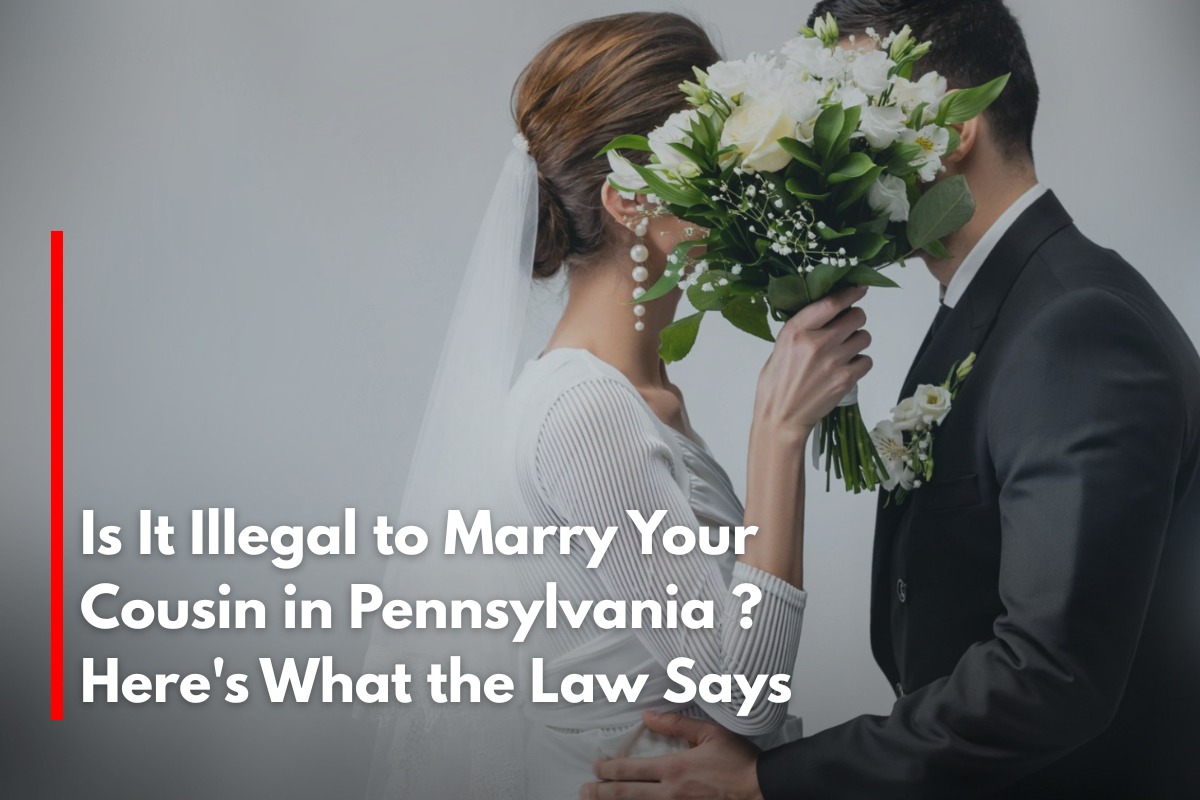In Pennsylvania, it is illegal to marry your first cousin. The law explicitly prohibits marriage between first cousins, making Pennsylvania one of the majority of U.S. states with a ban on such unions.
What the Law Says
The relevant statute, Title 23 of the Pennsylvania Consolidated Statutes §1304(e), provides a list of prohibited degrees of consanguinity (family relation) for marriage. This statute states:
County and state marriage license offices further confirm this ban. For instance, counties in Pennsylvania specify that “blood relatives down to and including first cousins may not marry under the laws of Pennsylvania.” The law applies regardless of age, health, or infertility status; there are no exceptions as found in some other states.
Historical Context
Historically, marriage between first cousins was accepted under common law in Pennsylvania, but this changed with the Act of 1901. Starting January 1, 1902, first cousin marriages contracted within Pennsylvania became illegal, and such marriages are declared void if performed in violation of this law.
Marrying Out of State
If Pennsylvania residents travel to another state where cousin marriage is legal (like New Jersey or New York) and marry there, complications may arise if they return to Pennsylvania. While Pennsylvania generally recognizes marriages performed legally elsewhere, it makes exceptions for unions that violate its strong public policy—meaning a first cousin marriage performed elsewhere typically won’t be recognized if both parties are Pennsylvania domiciliaries.
Other Relatives
First cousins once removed, second cousins, and more distant relatives are not covered by this prohibition and are eligible to marry in Pennsylvania.
Marriages between siblings and other close relatives (like a parent and child, uncle and niece, or aunt and nephew) are also strictly forbidden by law.
Rationale and Enforcement
The prohibition is rooted in concerns about genetics, family structure, and societal values, although the specifics of genetic risk are still debated. Marriage license clerks are required to deny applications for marriage between first cousins, and any such marriage performed in Pennsylvania is void under state law.
Key Takeaways
First cousin marriage is illegal in Pennsylvania.
There are no exceptions—age, infertility, or out-of-state ceremonies by PA residents do not typically make such unions legal under Pennsylvania law.
Marriages between more distant cousins (e.g., second cousins) are permitted.
Attempts to circumvent the law (by marrying in a state where it is allowed and returning) will likely not be recognized if both parties are Pennsylvania residents.
If you are considering marriage and think your relationship could fall under a prohibited category, consult with a family law attorney to understand the implications fully.
Sources
[1] https://www.palegis.us/statutes/consolidated/view-statute?txtType=HTM&ttl=23&div=0&chapter=13§ion=4&subsctn=0
[2] https://dataminingdna.com/can-first-cousins-marry-in-pennsylvania/
[3] https://theamm.org/marriage-laws/pennsylvania/1155
[4] https://yorkcountypa.gov/248/Marriage-Licenses
[5] https://www.dauphincounty.gov/government/publicly-elected-officials/register-of-wills-clerk-of-orphans-court/marriage-license











